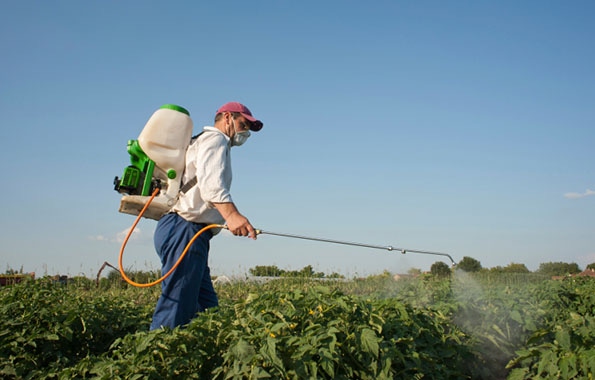California bans pesticide chlorpyrifos
Governor proposed $5.7 million in new funding for farmers to transition to safer alternatives.

The California Environmental Protection Agency announced May 8 that the Department of Pesticide Regulation (DPR) is acting to ban the use of the pesticide and air contaminant chlorpyrifos in California by initiating cancellation of the pesticide. Chlorpyrifos is a pesticide that is sprayed on a wide variety of crops, such as apples, oranges, strawberries, corn and wheat.The cancellation process could take up to two years.
California joins the states of New York and Hawaii in taking action to ban the use of chlorpyrifos. Just last week, the New York legislature passed a bill to ban chlorpyrifos, and the bill is on the way to the governor’s desk.
The California Environmental Protection Agency and the California Department of Food & Agriculture (CDFA) also announced that the governor will propose $5.7 million in new funding in the May revision budget proposal to support the transition to safer, more sustainable alternatives and plans to convene a working group to identify, evaluate and recommend alternative pest management solutions.
In April, chlorpyrifos was formally listed as a “toxic air contaminant,” which California law defines as “an air pollutant which may cause or contribute to an increase in mortality or an increase in serious illness or which may pose a present or potential hazard to human health.” The listing requires DPR to develop control measures to protect the health of farm workers and others living and working near where the pesticide is used.
DPR has determined, in consultation with CDFA, the Office of Environmental Health Hazard Assessment and the California Air Resources Board, that sufficient additional control measures are not feasible.
As a result, DPR intends to move forward in a responsible manner by beginning the process of canceling the registrations for products containing chlorpyrifos and, at the same time, convening a cross-sector working group to identify safer alternatives to avoid replacing chlorpyrifos with an equally harmful pesticide.
DPR also will consult with county agricultural commissioners and local air pollution control districts before filing for cancellation.
The New York legislature’s ban on chlorpyrifos would take effect Jan. 1, 2020. After that date, aerial application of the pesticide would be prohibited; after Jan. 1, 2021, all uses of the pesticide would be prohibited except for on apple tree trunks. On Dec. 1, 2021, all uses would be banned.
In 2015, the U.S. Environmental Protection Agency first proposed banning the usage of this chemical, and in 2016, it confirmed that there is enough evidence connecting the pesticide to neurodevelopmental harm in children, even at low levels of exposure, to warrant a nationwide ban of the chemical. This decision was reversed in 2017 under former EPA Administrator Scott Pruitt.
Earlier this year, Sen. Tom Udall (D., N.M.) reintroduced a 2017 bill that would protect children nationwide by banning chlorpyrifos from use on U.S. fruits and vegetables. It joins a similar House measure introduced earlier this year by Rep. Nydia Velázquez (D., N.Y.). Sen. Kirsten Gillibrand (D., N.Y.) also introduced legislation in April banning the use of chlorpyrifos from foods served in school meals.
About the Author(s)
You May Also Like





